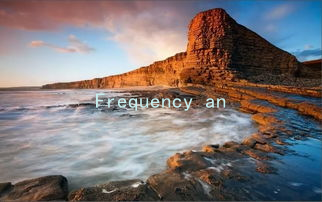Kiss and Tell: How Lip Sensitivity Shapes Your Romantic Experience
Kiss and Tell: How Lip Sensitivity Shapes Your Romantic Experience
When it comes to romance, the importance of physical connection cannot be overstated. Among the various forms of intimacy that couples share, kissing stands out as a profound expression of love, desire, and connection. However, what many might not realize is the significant role that lip sensitivity plays in shaping these romantic experiences. Understanding this aspect can revolutionize your approach to relationships and enhance the overall intimacy you share with your partner.
Lip sensitivity refers to the way our lips react to touch, pressure, and temperature. This sensitivity varies widely from person to person, influenced by factors like genetics, individual experiences, and even psychological factors. For many, the lips are not only a means of communication but also a highly sensitive area that can amplify feelings of pleasure and connection.
The significance of lip sensitivity becomes particularly important in romantic contexts. A partner with heightened lip sensitivity may respond differently to kisses, finding certain styles or techniques more pleasurable than others. This means that understanding your partners preferences is key to enhancing your romantic experiences. Learning to read subtle cues can guide you to adapt your kissing techniques in a way that resonates with your partner’s unique sensitivities.
One practical approach is to engage in open communication about kissing styles. Before diving into a passionate moment, take the time to discuss what types of kisses each of you enjoys. Do you prefer soft, lingering pecks or more adventurous, exploratory kisses? This dialogue not only cultivates understanding but also draws you closer together, laying the groundwork for deeper intimacy.

Building on this foundation of communication, consider the role of exploration in your romantic encounters. Pay attention to how varying pressure, rhythm, and temperature impact your partners responses. Some might revel in the gentle brush of lips, while others prefer firmer, more passionate contact. Experimenting with different techniques allows you to discover what sparks joy and excitement, creating a richer kissing experience.
Moreover, the power of non-verbal communication should not be underestimated. Body language plays a significant role in kissing and reveals much about your partner’s comfort level and preferences. A slight lean in, a soft sigh, or a playful smile can provide essential feedback. By attuning yourself to these cues, you can create an electric atmosphere that heightens the thrill of intimacy.
In addition to the mechanics of kissing, it’s crucial to consider the emotional context. Lip sensitivity isn’t just a physical phenomenon; it intertwines deeply with our emotional states. The act of kissing releases a cocktail of hormones, including oxytocin and dopamine, which can create feelings of happiness and bonding. Therefore, ensuring that both partners feel safe and emotionally connected can enhance the overall experience. Setting a romantic mood—think soft lighting, intimate settings, and perhaps a gentle soundtrack—can prepare both of you for a connection that transcends the physical.
Furthermore, recognizing the impact of external factors on lip sensitivity can also be beneficial. Elements such as weather, hydration, and even diet can influence how lips respond to stimulation. For instance, dry or chapped lips might feel less sensitive and can detract from the kissing experience. Taking the time to care for your lips by staying hydrated and using lip balm can make a noticeable difference.
In summary, understanding how lip sensitivity shapes romantic experiences is essential for couples looking to enhance their intimacy. By engaging in open communication, exploring various techniques, being attentive to non-verbal cues, and creating an emotionally supportive environment, you can create memorable kissing moments that deepen your bond. So the next time you share a kiss, remember that it’s not just the act itself but the delicate interplay of sensitivity, emotion, and connection that makes it truly special.





